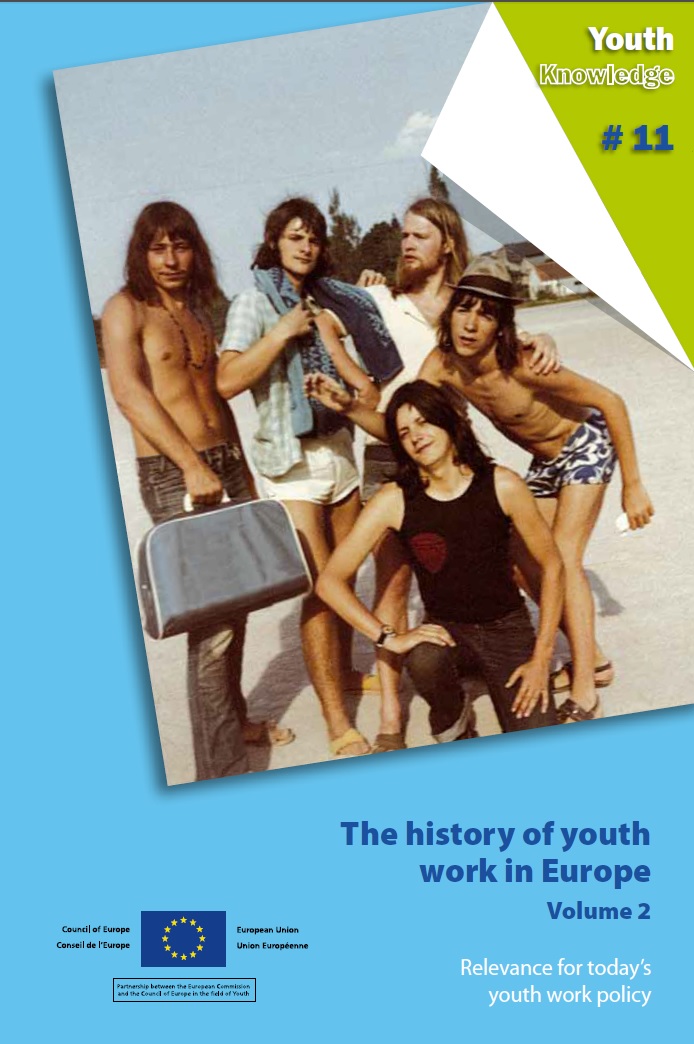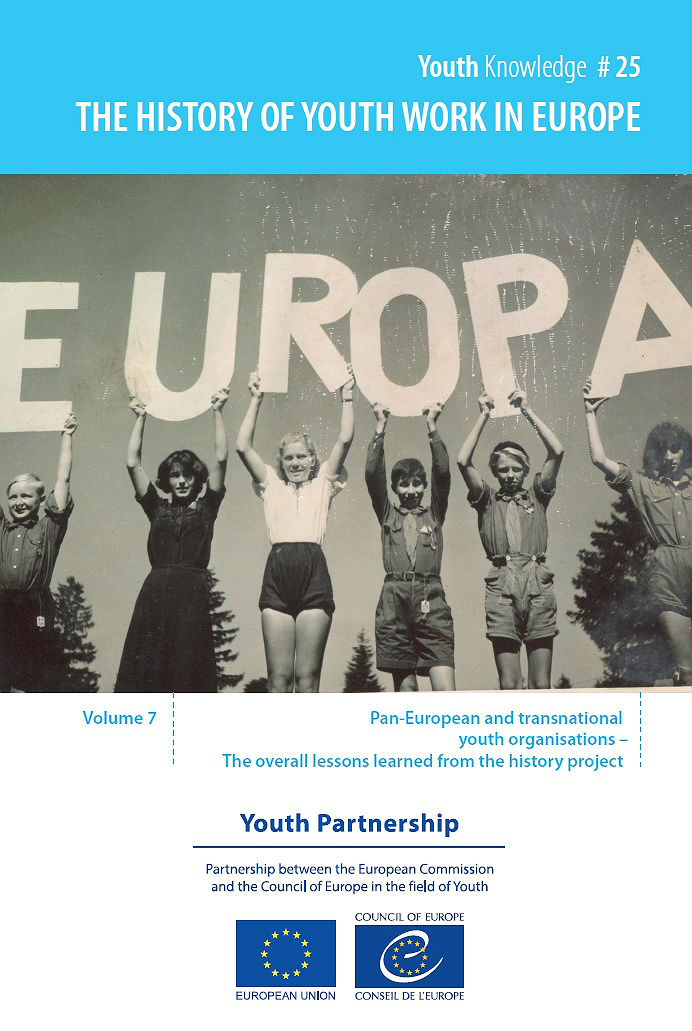The history of youth work in Europe - Volume 2. Relevance for today's youth work policy

Edited by Filip Coussée, Griet Verschelden, Tineke Van de Walle, Marta Mędlińska and Howard Williamson
Council of Europe, September 2010. ISBN 978-92-871-6824-5
Youth work starts where young people are. It is perhaps this general principle that seems to create a certain 'myopic view' in youth work practice, policy and research. We tend to concentrate on the questions of today and take them as a starting point for our future plans. This sometimes makes youth work an uncertain and fragile practice. The lack of historical consciousness makes youth work vulnerable to instrumentalisation, whether by policymakers or even by young people themselves, claiming youth work should fulfil the needs they define to be urgent and relevant.
Youth work is a contingent practice and history will not reveal to us its one and only real identity. Knowing where we come from, however, is an important step in establishing a confident, though not arrogant, identity. Youth work is a social and pedagogical practice that must be adapted to very diverse historical, geographic and social contexts, but there are still some underlying, basic assumptions that have structured practices and policies to date and continue to do so. In this light, a cross-cultural and transnational perspective can be most enlightening.
This second volume of The history of youth work in Europe, presents the youth work histories of some very different countries: Belgium and its three communities, the Netherlands, Ireland, Wales and Hungary. The reader is also introduced to the history of the relatively young European youth policies, and is even given a glimpse beyond European borders with a history of youth work in South Africa.

Council of Europe, 2019. 978-92-871-8965-3
Why have political, social or environmental causes often been behind the origin and evolution of youth organisations? Have other ideas been influential too? Why have some organisations expanded well beyond their countries of origin? To what extent have they held firm to their original values and purpose, and to what extent have they adapted and evolved in changing circumstances? How have they related to youth policy or youth work agendas? How vulnerable have they been to ideology, context or political influences? Which of their characteristics have persisted over time? These are some of the questions that are explored in this book, which draws on contributions from the last seminar on the history of transnational youth organisations and their relation to youth work today.
This book has three parts. The first explores the evolution of transnational youth organisations and movements over the past 100 years. The second adds two more country histories of youth work to the body of knowledge already established in earlier volumes in the series. The third and final part focuses on 12 “trilemmas” and reflections that have emerged from the 10-year History of Youth Work in Europe project. This anchors an invitation to the youth work community to consider and debate each trilemma, independently and in relation to each other, in the context of both the local environments of youth work delivery and across the wider European youth policy context, in anticipation of the 3rd European Youth Work Convention.
